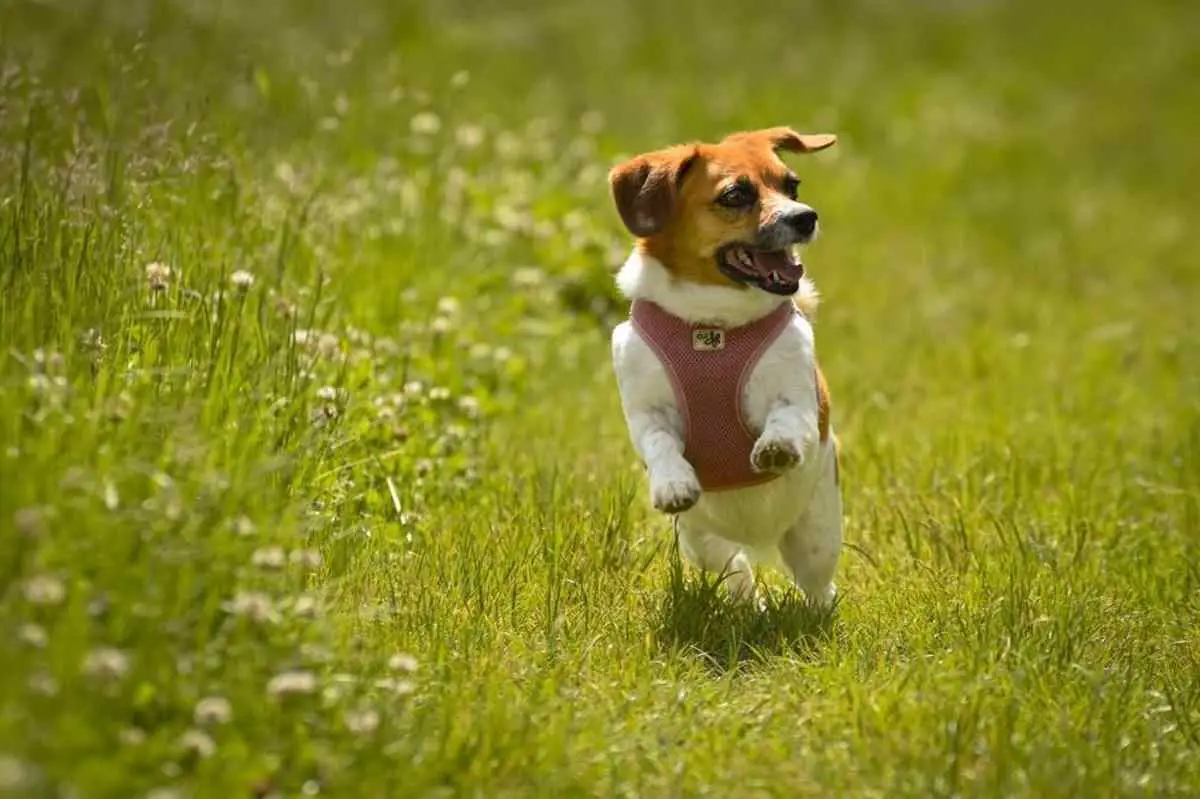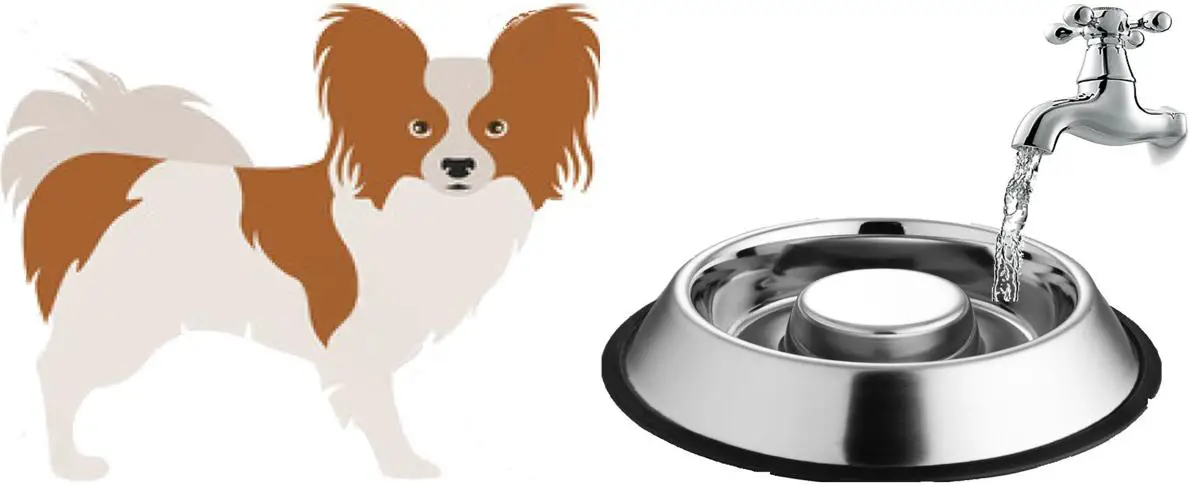Quick Links: Table of Contents
- Papillon Breed Overview
- History of the Papillon Breed. Where Papillons came from
- What the Papillon Looks Like
- How Much is the Papillon Puppy?
- Best Papillon Breeders
- Adopting or Rescuing the Papillon
- Papillon Growth
- What Colors do Papillons Have?
- The Temperament of the Papillon
- Papillon Litter Size
- How Fast Papillons Can Run
- Good Names for Papillons
- How Intelligent are Papillons?
- How Popular are Papillons with New Dog Owners?
- Health Problems in Papillons and How to Prevent Them
- How to Take Care of Papillon
- Dog Breeds That Are Similar to Papillons
- Other Things to Know About Papillons
Papillon Breed Overview
The Papillon is a tiny-sized dog.
The adult Papillon stands 8 to 11 inches tall at the shoulder.
The Papillon belongs to the Companion Dogs group.
Dogs in the Companion Dogs group, like the Papillon, were bred to be companions for humans. Their main goal in life is to be with people, and they will be very sad if left to themselves for long hours day after day.
The fact that the Papillon belongs to the Companion Dogs group is one of the reasons why Papillons have the personality and temperament that they have.
The temperament of the Papillon is generally described as:
- Alert
- Energetic
- Friendly
- Happy
- Intelligent
History of the Papillon Breed. Where Papillons came from
The Papillon breed can be traced back to 1500s Italy, when Tiziano Vecellio began painting family portraits with dogs that resembled the Spaniels used for hunting but were much smaller.
These Tetian Spaniels were only found in France and Spain during the Renaissance period.
Spaniels are so named because they are Spanish dogs.
As a result, it was assumed that they came from there.
However, they are said to have been perfected in France in the 1600s by Louis the XIV, who gave them the name Continental Toy Spaniel or Toy Spaniel.
They divided the Toy Spaniel into two breeds: Papillons (with erect ears) and Phalenes (with floppy ears).
Both of these breeds are still being bred.
.
What the Papillon Looks Like
Papillon is a small, friendly dog breed that is easily recognizable by its large, butterfly-like ears.
Papillons are very active and playful, and they enjoy spending time with their human companions.
They are also intelligent and quick to learn new tricks.
Papillons are relatively healthy dogs, but like all breeds, they are susceptible to some health problems.
Papillons are prone to dental problems, and they should have their teeth brushed regularly.
Papillons are also susceptible to eye problems, such as cataracts and glaucoma.
Despite these potential health concerns, Papillons make great pets for families and individuals who are looking for a loving, energetic companion.
.
How Much is the Papillon Puppy?
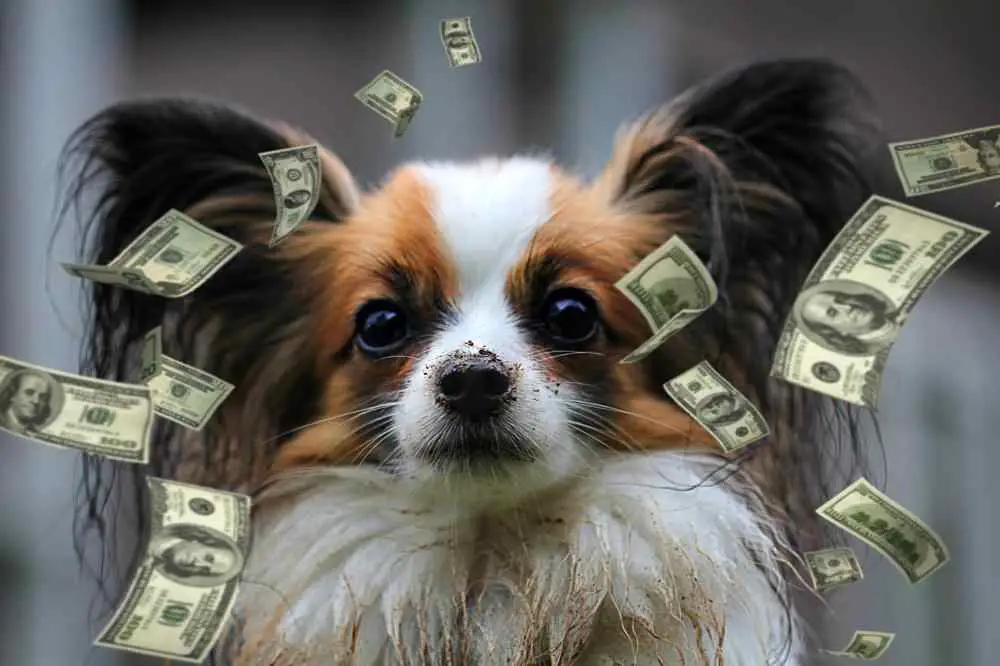
The average price of a Papillon puppy is $1800. The price of a Papillon puppy ranges from $1400 to $2000.
A lot of factors determine the price of the Papillon. These factors include what health records the Papillon puppy has, the lineage of the Papillon puppy, the US state the breeder is located in, etc.
To estimate how much you can expect to pay for a puppy Papillon based on the many factors that determine the price of the Papillon puppy, check out our calculator that lets you estimate how much you should expect to pay for the Papillon puppy based on what you want in the puppy.
When looking to buy a puppy, look at buying a puppy only from well-established breeders that breed puppies primarily for the love of the Papillon breed, and secondarily for profit. Do not buy a puppy from a puppy mill. Puppy mills mass-produce puppies in bad living conditions for maximum profit.
You may also consider adopting instead of buying a puppy. Adoption costs are very low compared to the price of a puppy.
Best Papillon Breeders
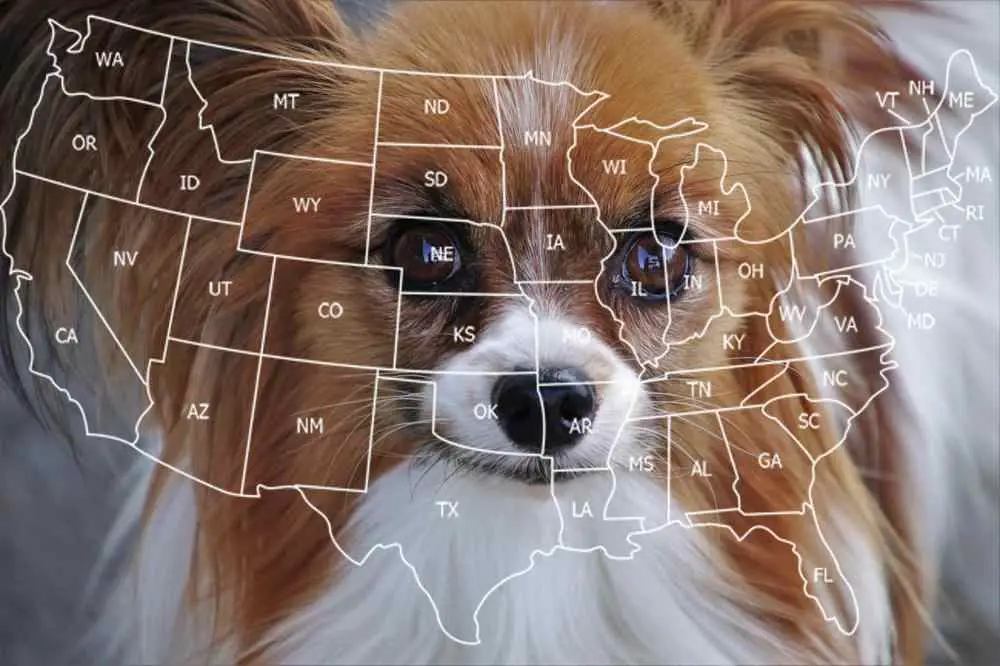
We have researched reputable Papillon breeders that you can buy a puppy.
Go to this page for our complete list of reputable Papillon breeders in various states in the United States.
On this page, you will see how much these breeders sell their puppies for, and how many puppies they have available.
A few of these breeders are listed below.
Runway Papillons
Puppy Price: $3500
Karen Swerdon
Puppy Price: $1800
Heartworks
Puppy Price: Check with breeder
Spring Creek Papillons
Puppy Price: Check with breeder
Robinhood Papillons
Puppy Price: Check with breeder
Adopting or Rescuing the Papillon
You may consider adopting a dog instead of buying a puppy. Many dogs, Papillons included, are currently available for adoption in your local dog shelters.
These helpless but adorable dogs are waiting in dog shelters hoping that someday someone will rescue them. Dog adoption costs are lesser than the cost of a new puppy. Dog adoption costs are usually around $300 or even less.
In addition to your local dog shelter, another good place to find dogs that are available for adoption is petfinder.com.
Below is an adorable Male Papillon named Lobo that is currently available for adoption on Petfinder.com. You can find other lovely Papillons like Lobo on pefinder.com.
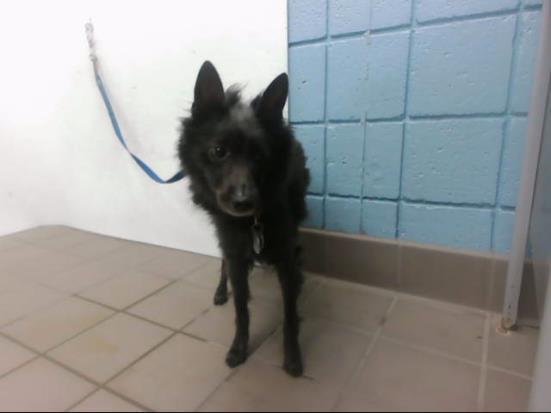
Papi is the name of another Papillon (Male) on petfinder.com that is looking for a new forever home.

You can find more Papillons that are available for adoption on petfinder.
Papillon Growth
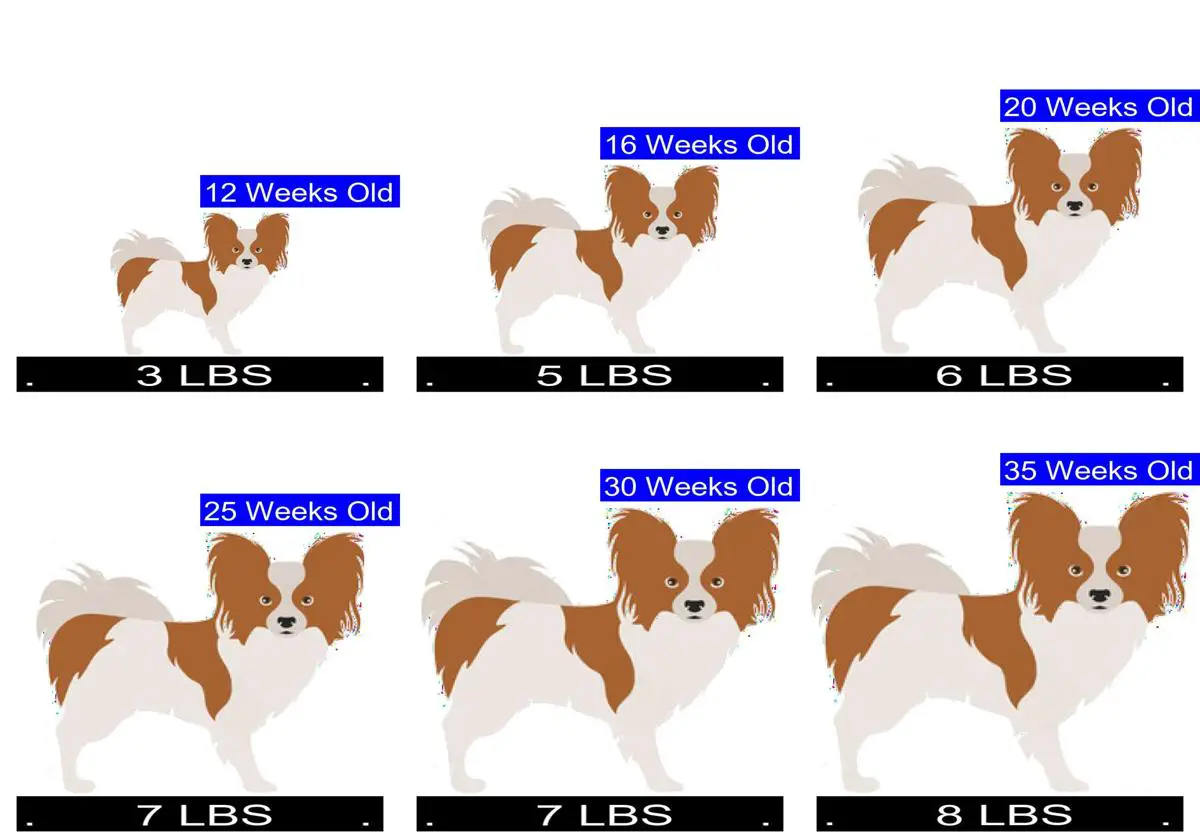
New Papillon owners need to know about the growth of their Papillons. This will help them plan their living spaces accordingly.
Also, knowing the typical growth pattern of the Papillon will help new owners catch the abnormal growth of their Papillon early.
See our calculator for predicting how big your Papillon puppy will get. You will also learn about the typical weight of the Papillon at different ages and how to catch abnormal growth in your Papillon
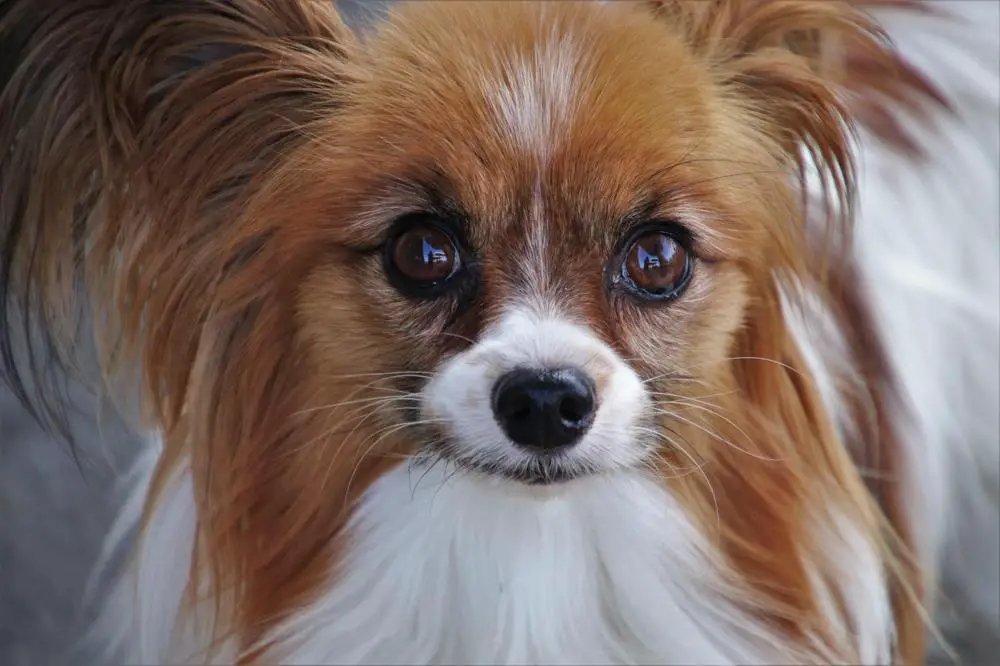
What Colors do Papillons Have?
Papillons come in the following beautiful primary colors:
- Yellow / Tan / Blond / Fawn
- White / Cream
- Red / Chestnut / Orange
- Brown / Chocolate
- Tricolor (Brown, Black, & White)
- Sable
- Black
Papillons come in the following lovely secondary colors in addition to their primary colors:
- White / Cream
- Tricolor (Brown, Black, & White)
- Black
- Yellow / Tan / Blond / Fawn
- Red / Chestnut / Orange
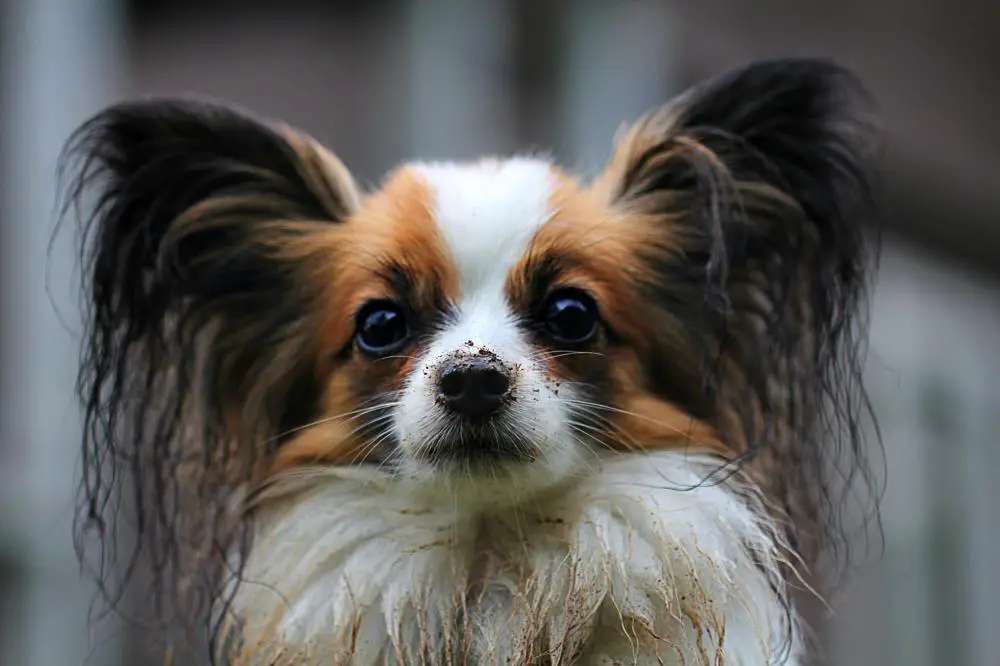
The Temperament of the Papillon
The temperament of the Papillon based can be summarized as in the table below.
The table shows the scores of the Papillon for 13 important dog behavioral factors.
We obtained these scores by analyzing raw data from the C-BARQ dog personality survey tool. The higher the score of a dog for a factor, the worse the temperament of the dog regarding that factor.
The C-BARQ tool was developed by researchers from the University of Pennsylvania, and it is a scientific tool that is used worldwide for reliably measuring the temperament of dog breeds.
See our complete analysis of the temperament of the Papillon here.
| Factor | Score |
|---|---|
| Energy Level | 60.5 percent |
| Excitability | 44.4 percent |
| Attachment Attention Seeking | 44.2 percent |
| Separation Related Behavior | 41.7 percent |
| Stranger Directed Fear | 40.9 percent |
| Dog Directed Aggression | 40.3 percent |
| Dog Directed Fear | 40.0 percent |
| Touch Sensitivity | 34.7 percent |
| Dog Rivalry | 31.4 percent |
| Prey Drive | 29.9 percent |
| Stranger Directed Aggression | 26.2 percent |
| Nonsocial Fear | 24.4 percent |
| Stubbornness | 21.2 percent |
| Owner Directed Aggression | 20.5 percent |

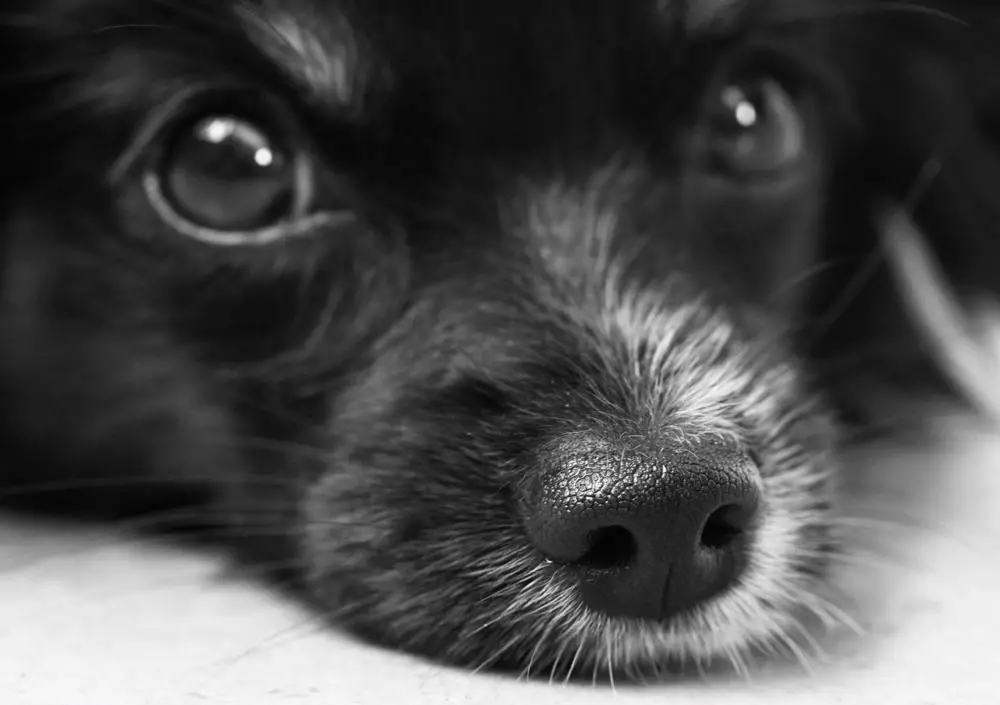
Papillon Litter Size
Researchers from the Norwegian School of Veterinary Science did a study where they counted the numbers of puppies in 166 different Papillon birth litters.
From this study, the researchers found that the average number of puppies that Papillons can have is 3 puppies. Also, the Papillon can have as few as 1 puppies per litter and as many as 7 puppies per litter.
The number of puppies that the Papillon will have depends on factors such as the age of the Papillon, the method of pregnancy, etc.
Click here to see our calculator for predicting how many puppies your Papillon will have and how the litter size of the Papillon compares to the litter size of other dog breeds.
How Fast Papillons Can Run

How fast a dog breed can run is a good measure of how athletic the dog breed is.
The American Kennel Club (AKC) regularly conducts dog running competitions. The AKC records the running speed of competing dogs in these competitions. These competitions are open to all dog breeds.
Based on our analysis of the speeds of 147 different Papillons, the average speed of the Papillon is 17.8 mph (28.6 kmph).
The fastest speed on AKC record that the Papillon ran in a race is 28.7 mph (46.2 kmph) and the minimum speed on record in a race for a Papillon is 5.31 mph (8.5 kmph).
Click here to see how the speed of the Papillon compares to the speed of other dogs and other mammals such as cats, horses, humans, etc.
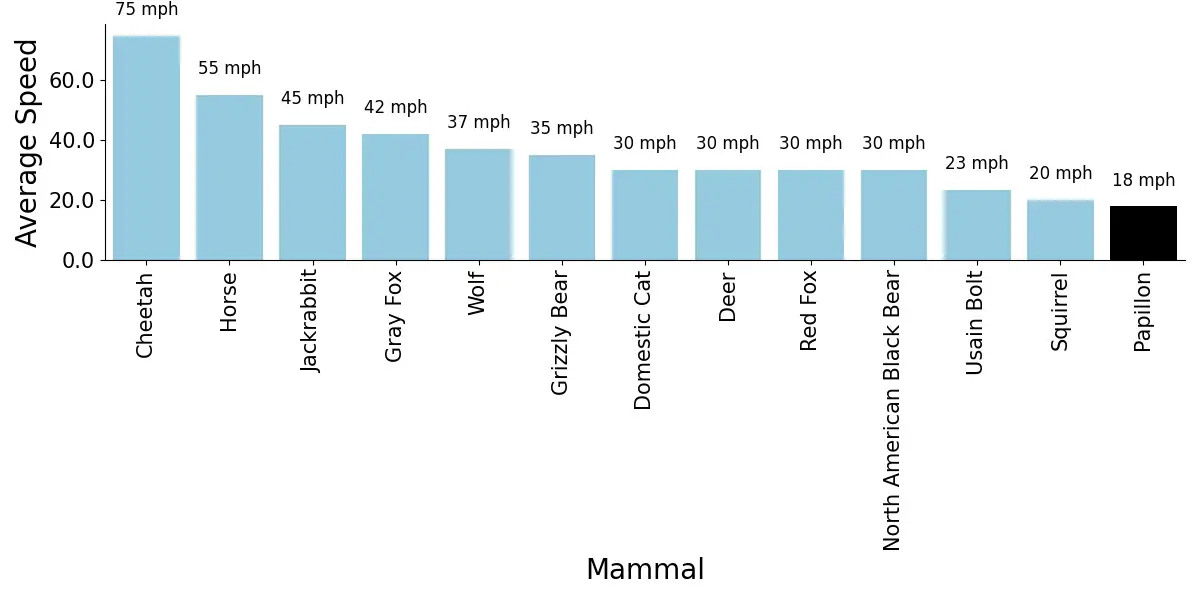
Good Names for Papillons
Here are some really good names that are typical for the Papillon ranked by popularity:
- Sparky
- Pappy
- Papi
- Bogey
- Blaze
- Micah
- Jacque
- Pappi
- Snoopy
- Mouse

How Intelligent are Papillons?
| Papillon | |
|---|---|
| Intelligence Rank | 8 out of 130 dog breeds |
| Trainability | Tend To Learn New Commands After Fewer Than 5 Repetitions |
According to Prof. Stanley Coren, a Canadian psychology professor/dog trainer, the total intelligence that a dog demonstrates is the addition of three types of intelligence. These intelligence types are:
- Instinctive Intelligence: This is the natural intelligence that comes from instinct. For example, dog breeds that have been historically bred to be guard dogs will have a high `guarding` intelligence compared to dogs that were not bred for guarding.
- Adaptive Intelligence (learning and problem-solving ability): This indicates what a dog can learn to do for himself or herself. Adaptive intelligence is specific to each dog, and not breed specific. You can improve your dog`s adaptive intelligence by investing time to train your dog.
- Working/Obedience Intelligence: This type of intelligence is breed-specific. Certain dog breeds tend to have higher working/obedience intelligence than some other breeds. This intelligence is the closest to what we might call school-learning ability and it is based upon what the dog can learn to do when instructed by humans. This type of intelligence can be measured for each dog breed and compared to that of other dog breeds.
Professor Stanley Coren measured and ranked the working intelligence of about 130 different dog breeds.
Prof. Coren found that the Papillon has an obedience intelligence rank of 8 out of 130 dog breeds. Thus, Prof. Coren put Papillons in the `Brightest Dogs` category.
This means that Papillons tend to learn new commands after fewer than 5 repetitions.
However, we should mention that a dog should not be judged based on its intelligence alone. There are other important factors you need to consider when deciding on which dog breed to get. These other factors include sociability, adorability, and compatibility of the dog breed with your lifestyle.
See the intelligence ranking of some other dog breeds below:
| Breed | Intelligence Rank |
|---|---|
| Papillon | 8 |
| Rottweiler | 9 |
| Belgian Malinois | 22 |
| Welsh Springer Spaniel | 31 |
| American Staffordshire Terrier | 34 |
| Cairn Terrier | 35 |
| Norwegian Elkhound | 36 |
| Norwich Terrier | 38 |
| Dalmatian | 39 |
| Curly-Coated Retriever | 41 |
| Kuvasz | 42 |
| Scottish Deerhound | 47 |
| Boxer | 48 |
| Alaskan Malamute | 50 |
| Norfolk Terrier | 56 |
| Great Pyrenees | 64 |
| Saint Bernard | 65 |
| Lhasa Apso | 68 |
| Chow Chow | 76 |
| Basenji | 78 |
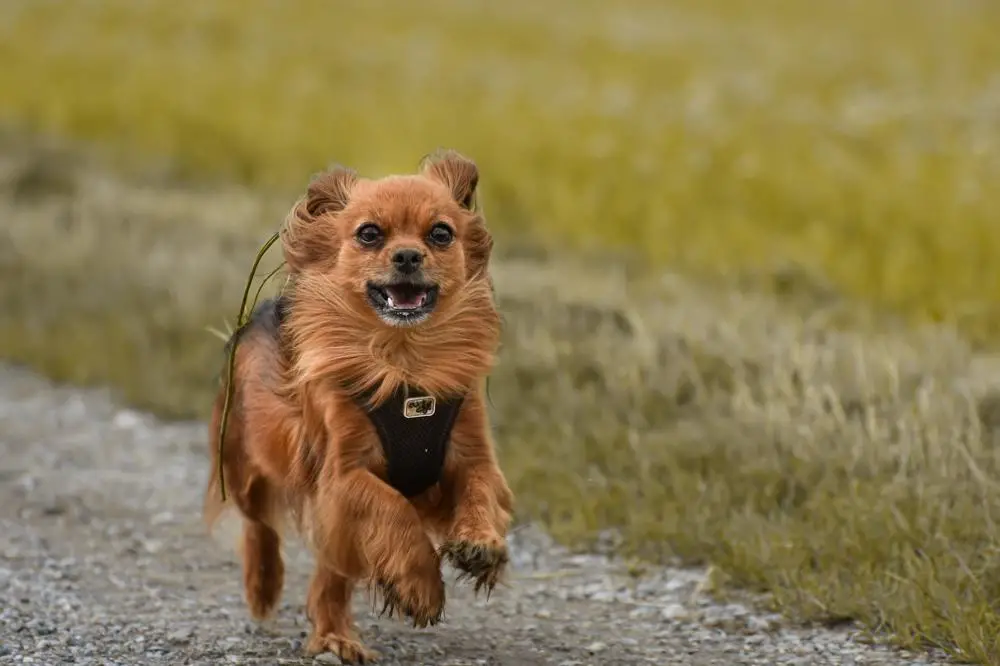
How Popular are Papillons with New Dog Owners?
Every year, the American Kennel Club (AKC) publishes information on how popular a dog breed is in that particular year. The AKC gets the popularity information of a breed from how many dogs of that breed the owners register with the AKC every year. The AKC collects this data for about 200 dog breeds.
The graph below shows the popularity trend of the Papillon.
The popularity of the Papillon averaged over the years is Number 49 out of about 200 dog breeds.
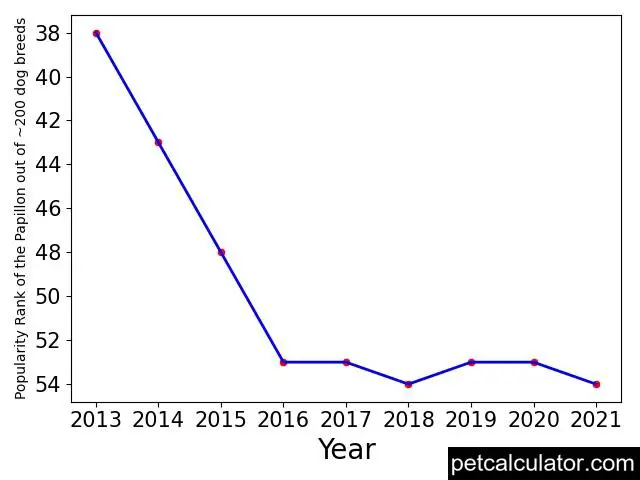
Do not get a dog breed just because it is a popular dog breed. And do not reject a dog breed just because it is an unpopular breed.

Health Problems in Papillons and How to Prevent Them
Every dog breed has its own set of health problems that it tends to develop. There is nothing like a perfect dog breed.
The Papillon is prone to certain genetic health conditions. The Orthopedic Foundation for Animals (OFA) is an organization that keeps track of genetic health problems in dog breeds.
From the extensive records that the OFA keeps, the OFA knows what health problems each dog breed is naturally prone to develop.
Hence, the OFA recommends which health screening breeders should perform on a dog breed to make sure that the breeders won`t breed `defective` dog parents that can pass down defective genes to their puppy offspring.
If you want a Papillon puppy that will grow up to be healthy, make sure that your Papillon breeder screens your puppy or your puppy`s parents for the health problems that the OFA recommends for your puppy`s breed. This will increase the chances that your puppy is free from genetic defects.
The following are the health tests that Orthopedic Foundation for Animals (OFA) recommends that breeders should screen Papillons for:
You can find out more about OFA`s recommended tests for Papillons here.

How to Take Care of Papillon
To take good care of your Papillon, you need to make sure that you groom your Papillon regularly.
Secondly, you need to find a veterinarian in your area that will routinely check the health status of your Papillon regularly, and give you appropriate recommendations on your Papillon`s preventative care.
Thirdly, you need to commit some time to exercise your Papillon daily. Regular exercise helps improve the health and quality of life of your Papillon.
Also, you need to feed your Papillon high-quality dog food, and the food should be of the right amount to prevent your Papillon from getting overweight or underweight.
See our recommendations on what to feed the Papillon and how much food to feed the Papillon at different life stages.
Finally, you need to make sure that your Papillon has access to clean water all the time. See our recommendations on how much water your Papillon needs to drink at different ages.
Dog Breeds That Are Similar to Papillons
If you have not made up your mind on which dog breed to get, you may also want to consider some other dogs similar to the Papillon.
We crunched the numbers and found that the following dog breeds that have similar behavior and temperament as the Papillon:
- Bichon Frise (78 percent match with Papillon). Learn more about the Bichon Frise here.
- Cavachon (78 percent match with Papillon). Learn more about the Cavachon here.
- Havanese (79 percent match with Papillon). Learn more about the Havanese here.
- Papipoo (86 percent match with Papillon). Learn more about the Papipoo here.
- Bich Poo (78 percent match with Papillon). Learn more about the Bich Poo here.
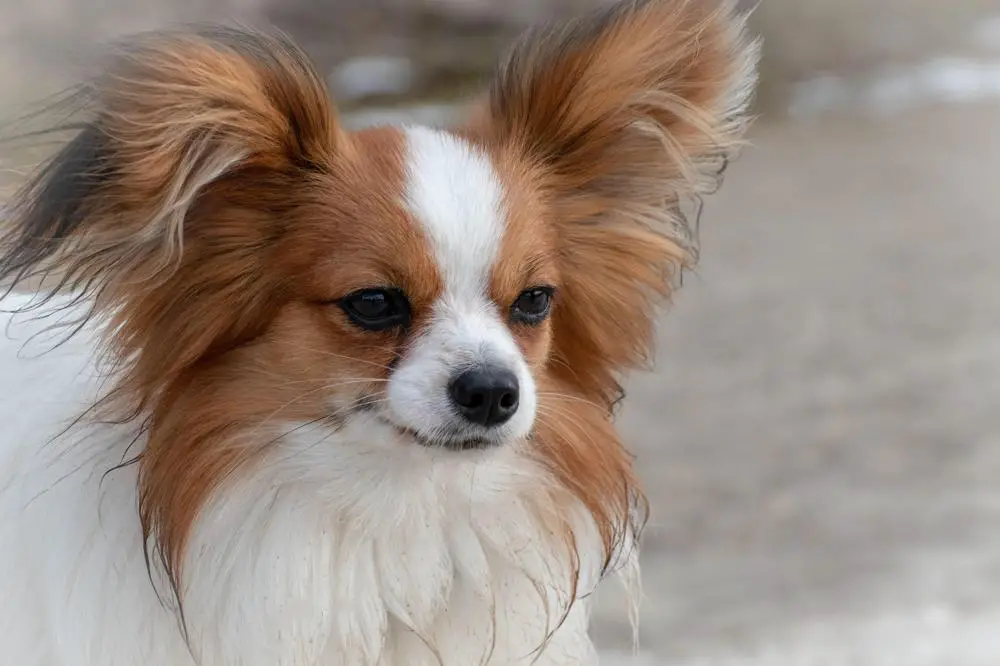
Other Things to Know About Papillons
Here are some of the very important characteristics of the Papillon that you need to know about the Papillon breed:
